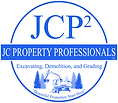Home improvement projects like retaining walls, driveway repairs, and more can be a great way to increase the value of your home and enhance your living space. However, financing these projects can be a challenge, especially if you don't have the cash on hand to pay for them outright. In this blog, we'll explore some of the most common ways to finance home improvement projects.
1. Personal Savings
Using personal savings is the simplest way to finance home improvement projects. If you have the cash on hand, you can avoid paying interest on loans and credit cards. This is the most cost-effective option, but it may not be feasible for everyone.
2. Home Equity Loans
Home equity loans allow you to borrow against the equity in your home. This can be a good option if you have a significant amount of equity built up and need a large sum of money for your project. These loans typically have a fixed interest rate and a repayment period of 10-15 years.
3. Home Equity Lines of Credit (HELOC)
HELOCs are similar to home equity loans, but they function more like a credit card. You can borrow against the equity in your home as needed and pay interest only on the amount you borrow. HELOCs typically have variable interest rates and a draw period of 5-10 years, followed by a repayment period of 10-20 years.
4. Cash-out Refinance
A cash-out refinance allows you to refinance your existing mortgage and borrow against the equity in your home. This can be a good option if you want to take advantage of lower interest rates or if you need a significant amount of cash for your project. However, you will need to pay closing costs and may end up with a higher monthly payment.
5. Credit Cards
Credit cards can be a convenient way to finance smaller home improvement projects. However, they often have high-interest rates, so it's important to pay off the balance as quickly as possible to avoid paying too much in interest.
7. Personal Loans
Personal loans can be a good option if you need a smaller amount of money for your project and don't have the equity in your home to borrow against. These loans typically have fixed interest rates and repayment periods of 2-7 years.
When deciding how to finance your home improvement project, it's essential to consider your budget, credit score, and the total cost of the project. Compare interest rates and repayment terms from multiple lenders to find the best option for your needs. Remember to factor in the cost of interest and fees when calculating the total cost of financing your project. With careful planning and research, you can find the right financing option to make your home improvement project a reality through JC Property Professionals!
